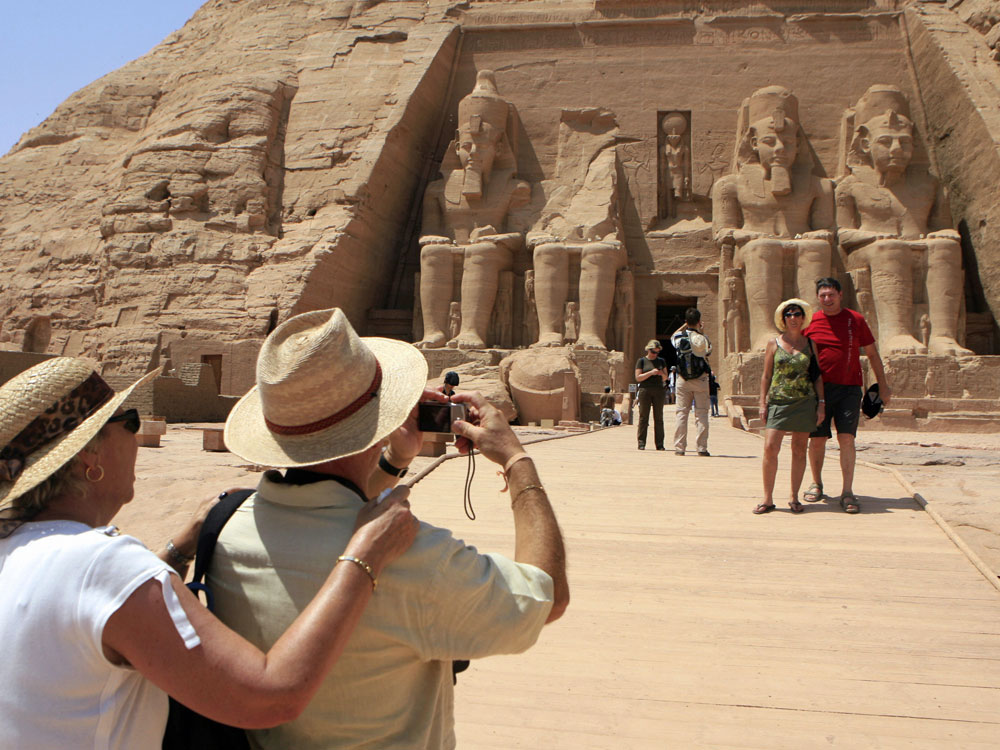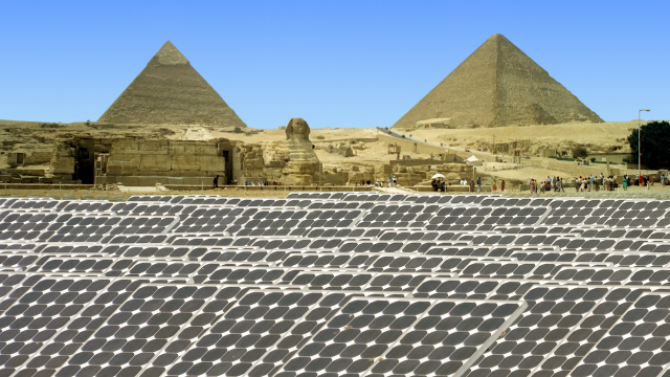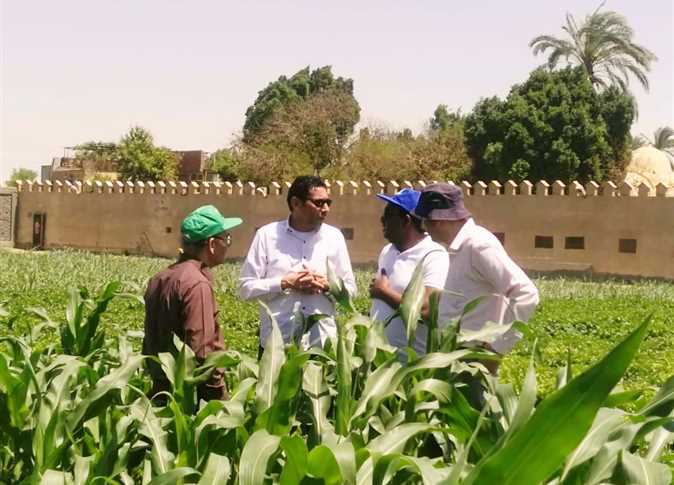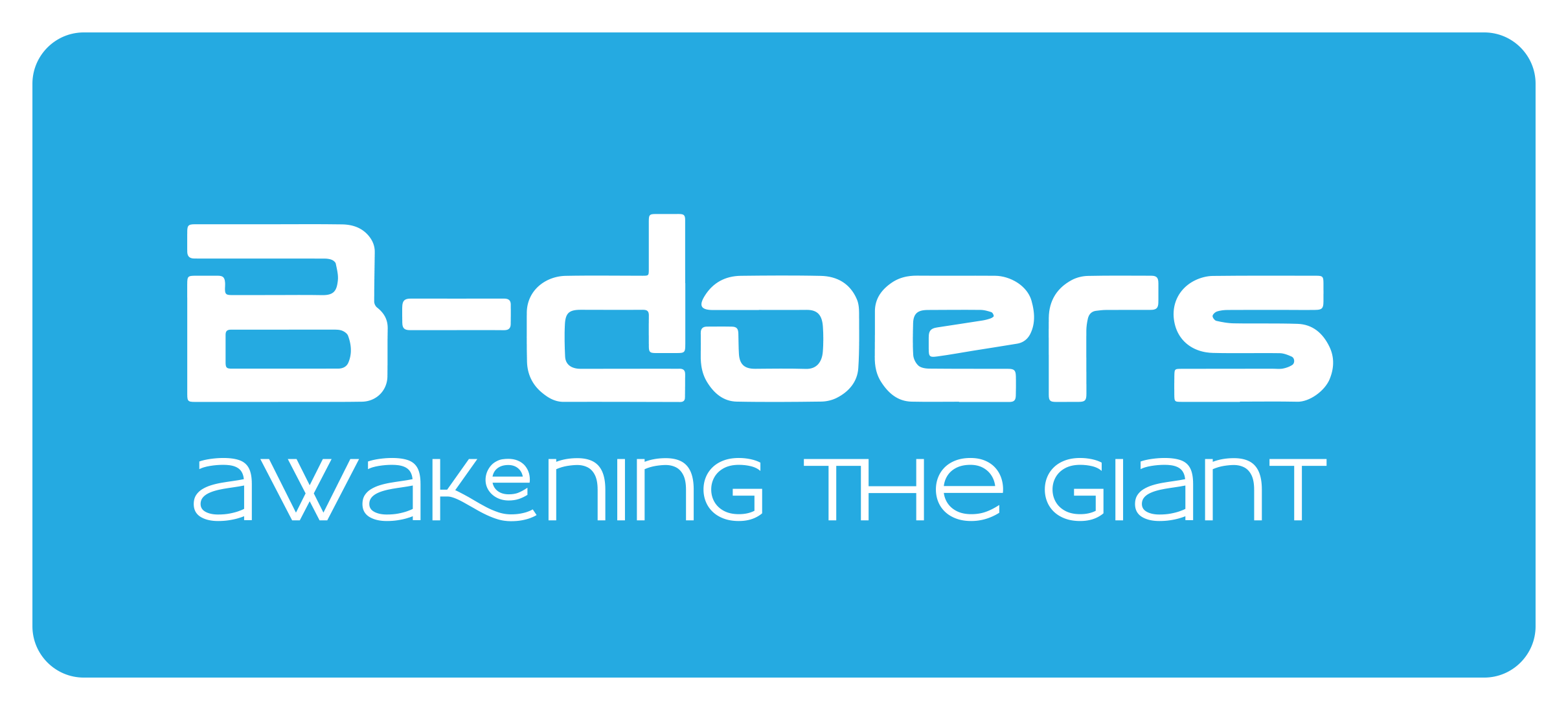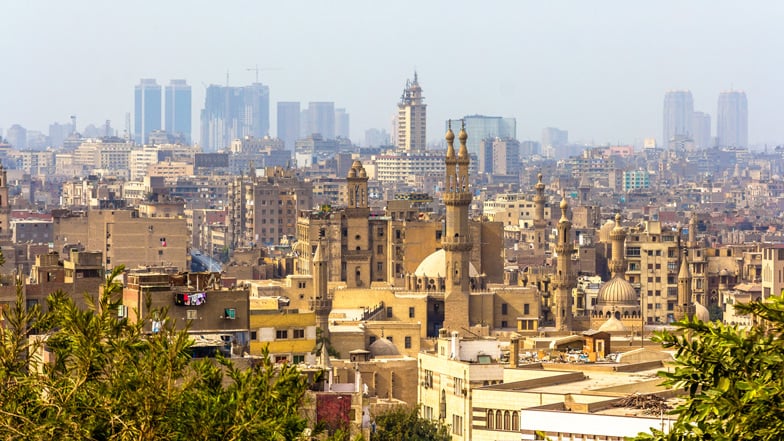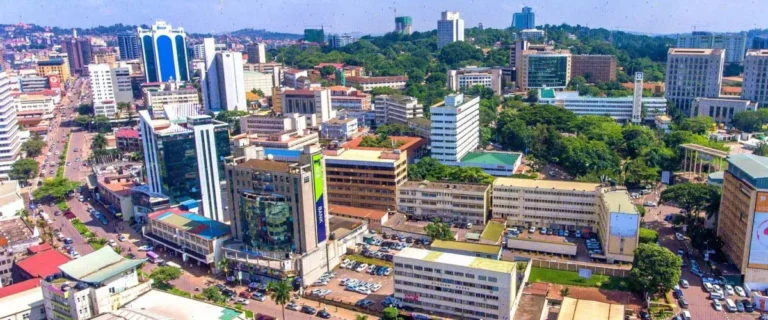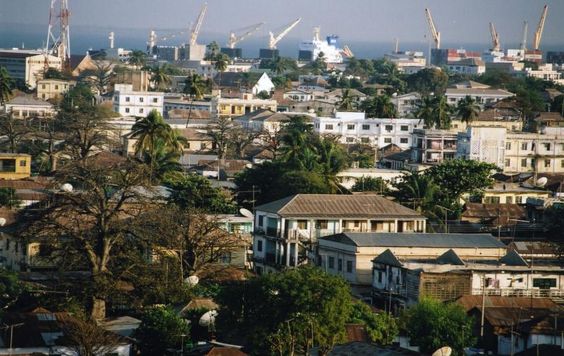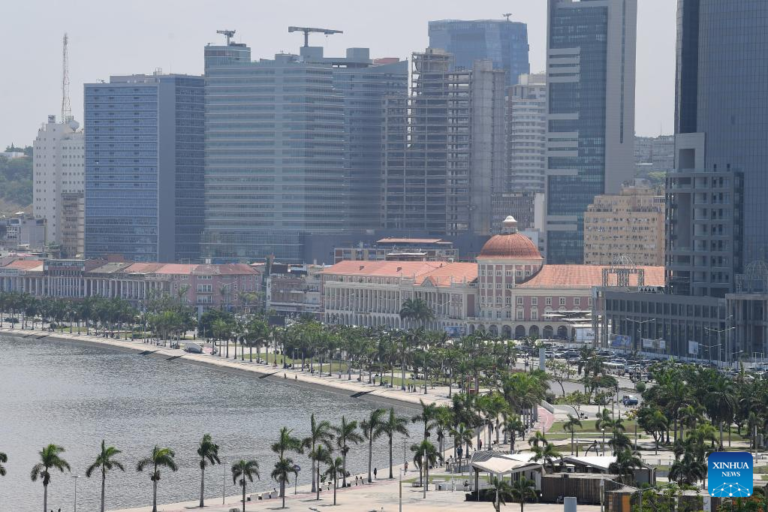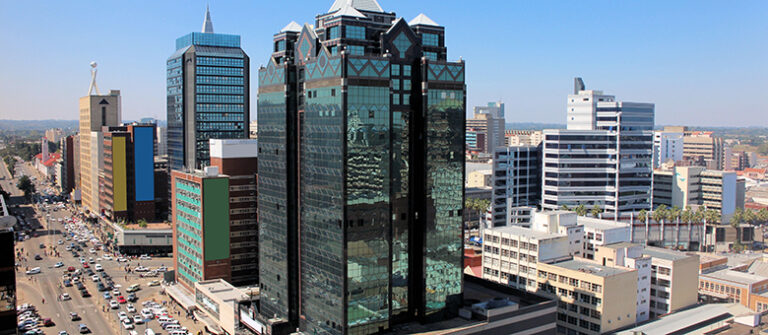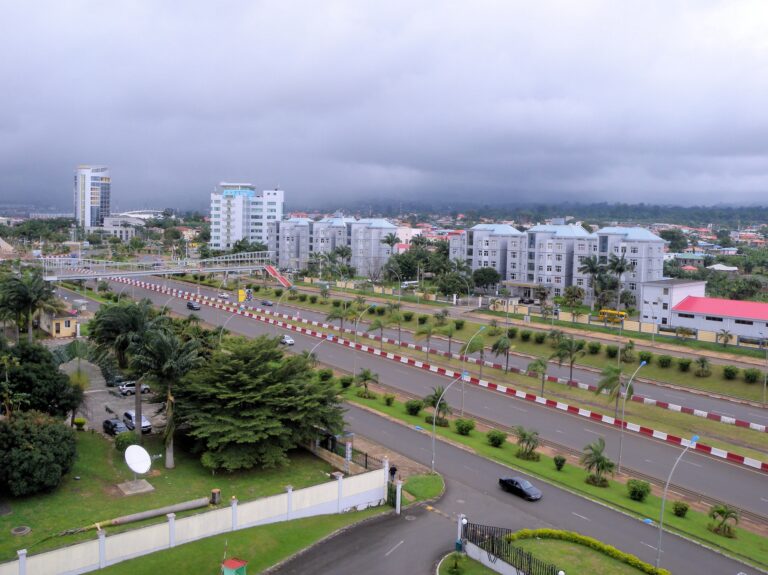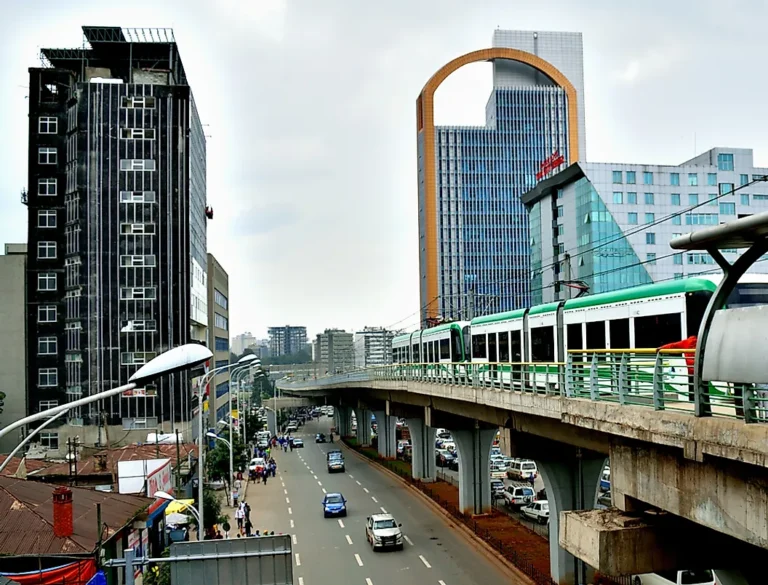Egypt officially the Arab Republic of Egypt is a transcontinental country spanning the northeast corner of Africa and southwest corner of Asia whose capital is Cairo. Egypt has one of the longest histories of any country, considered a cradle of civilization. Ancient Egypt saw some of the earliest developments in writing, agriculture, urbanization, organized religion, and central government. Modern Egypt dates back to 1922 when it gained independence from the British Empire as a monarchy and Arabic is its official language.
With 108,093,809 as of Thursday, June 29, 2023, based on Worldometer elaboration of the latest United Nations data, Egypt is the most populous country in North Africa, the Middle East, and the Arab world, the third-most populous in Africa, and the fourteenth-most populous in the world. It uses the Egyptian pound as its currency and Cairo is its capital city and has an area of 1,002,450 km2 (387,050 sq. mi) which makes it the 31st largest country in the world. Egypt’s young population is rapidly growing. The adolescents (aged 10-19) are around 17 million, representing approximately 19 percent of the total population. Together with youth in the age group 20-24 years, an additional 9 million, adolescents and youth represent almost one-third of the Egyptian population.
Egypt’s economy depends mainly on agriculture, media, petroleum imports, natural gas, and tourism. There are also more than three million Egyptians working abroad, mainly in Libya, Saudi Arabia, the Persian Gulf, and Europe. The government has invested in communications and physical infrastructure. Egypt’s economy mainly relies on these sources of income: tourism, remittances from Egyptians working abroad, and revenues from the Suez Canal and it has a developed energy market based on coal, oil, natural gas, and hydropower. Tourism is one of the most important sectors of Egypt’s economy. More than 12.8 million tourists visited Egypt in 2008, providing revenues of nearly $11 billion. The tourism sector employs about 12% of Egypt’s workforce.
Ismaïl Omar Guelleh is the current President of Djibouti. He has been in office since 1999, making him one of the longest-serving rulers in Africa. He is often referred to by his initials, IOG.
The current population of Djibouti is 1,030,858 as of Thursday, June 29, 2023, based on Worldometer elaboration of the latest United Nations data.
The economy of Djibouti is derived in large part from its strategic location on the Red Sea. Djibouti is mostly barren, with little development in the agricultural and industrial sectors.
The country has a harsh climate, a largely unskilled labor force, and limited natural resources. The country’s most important economic asset is its strategic location, connecting the Red Sea and the Gulf of Aden. As such, Djibouti’s economy is commanded by the services sector, providing services as both a transit port for the region and as an international transshipment and refueling center
Over 60 % of the population in the Arab states is under the age of 30, and one-third are between 24 and 29 years of age.
The Youth Leadership Programme (YLP) equips youth with tools to develop their own unique and innovative solutions to address real-life challenges and further the 2030 Agenda and its 17 goals.
The Sustainable Development Goals (SDGs), also known as the Global Goals, were adopted by the United Nations in 2015 as a universal call to action to end poverty, protect the planet, and ensure that by 2030 all people enjoy peace and prosperity.
Vision 2035 is a long-term strategic vision for the Republic of Djibouti. Its objective is to position the country as a hub for the regional and continental economies. It was developed in concert with Djiboutian youth, political parties, civil society, the private sector, and international development partners; and therefore reflects a set of economic, political, and social goals for all of society.
The current population of DR Congo is 5,923,553 as of Thursday, June 29, 2023, based on Worldometer elaboration of the latest United Nations data.
Denis Sassou Nguesso is a Congolese politician and former military leader. He served a previous term as president from 1979 to 1992. During his first period as president, he headed the Congolese Party of Labour (PCT) for 12 years.
During the 2021 elections that took place on March 21, 2021, Sassou Nguessou, who faced six challengers for the presidency, came first once again.
The economy of the Republic of the Congo is a mixture of subsistence hunting and agriculture, an industrial sector based largely on petroleum extraction and support services. Government spending is characterized by budget problems and overstaffing. Petroleum has supplanted forestry as the mainstay of the economy, providing a major share of government revenues and exports. Nowadays the Republic of the Congo is increasingly converting natural gas to electricity rather than burning it, greatly improving energy prospects.
There is no documented definition of youth. On 27 January 2012, the Minister of Youth and Civic Education referred to youth as ages “0 to 35 years” in a speech to his department. However, Congo-Brazzaville is also a signatory to the African Youth Charter, which defines youth as 15-25 years. The Ministry of Youth and Civic Education, along with UNFPA Congo, developed a Code of Conduct for New Congolese Youth (NJECO).
The Government’s main development priorities are articulated in the national development plan for 2018–2022, which incorporates plans for achieving all the Sustainable Development Goals, emphasizing education, economic diversification through agriculture, and the opportunities offered by digital transformation enabling the use of innovations
At 1,861 km2 (719 sq mi), excluding the contested island of Mayotte, Comoros is the fourth-smallest African nation by area. The current population of Comoros is 924,886 as of Thursday, June 29, 2023, based on Worldometer elaboration of the latest United Nations data.
Azali Assoumani is a politician and military leader from the Comoros. Since April 2019, he has been the President of the Comoros. From 2002 to 2006 and from 2016 to February 2019, he was also president. The economy of the Comoros is based on subsistence agriculture and fishing. Comoros has inadequate transportation links, a young and rapidly increasing population and few natural resources. The low educational level of the labor force contributes to a subsistence level of economic activity, high unemployment, and a heavy dependence on foreign grants and technical assistance.
Its development is also hampered by weak infrastructure, particularly in the energy sector. According to World Bank projections, the tourism and telecommunications sectors are expected to drive economic activities in years to come. The country has strong social inequalities and nearly 18% of the population lives below the international poverty line set per capita per day.
The key development documents are Comoros – Country Strategy Paper 2021-2025, Emerging Comoros Plan 2030, and Country Partnership Framework for the Union of Comoros for the period 2020-2024.
Business opportunities in Egypt
Egypt has a diverse economy, and there are many investment opportunities available in various sectors. Some potential investment opportunities in Egypt are Top of Form
Bottom of Form
Real Estate Investment, Oil and Gas Investment, Agricultural Investment, Tourism Investment, and Renewable Energy Investment.
